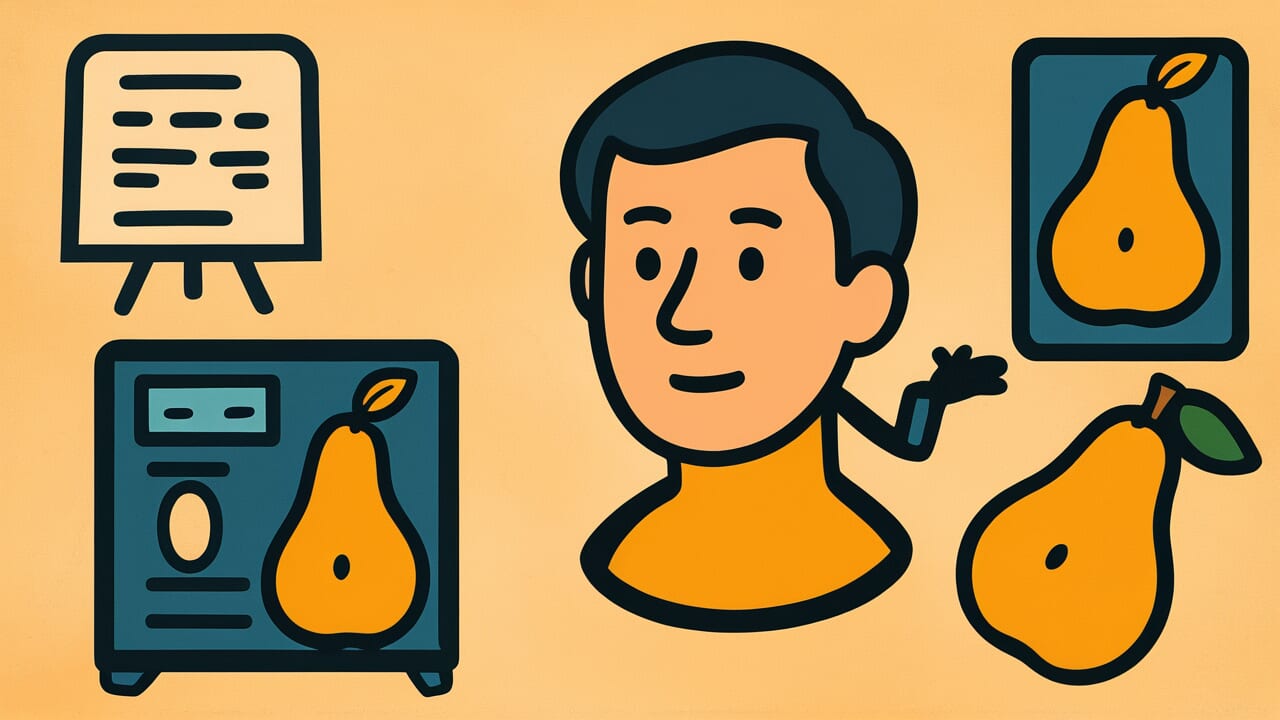How to Read “When you have, you have everything; when you don’t, you don’t even have a pear”
Aru toki wa ari ga ari, nai toki wa nashi mo nai
Meaning of “When you have, you have everything; when you don’t, you don’t even have a pear”
This proverb describes situations that swing between two extremes: total abundance and complete scarcity. There’s no middle ground.
When things are good, you have plenty. When things are bad, you have absolutely nothing.
People often use this saying to describe boom-and-bust cycles. During good economic times, jobs and income are plentiful. When the economy crashes, both disappear completely.
Think about product trends too. When something is popular, stores stack it high on their shelves. Once the trend passes, you can’t find it anywhere.
The proverb also describes uneven distribution. Some places have way more than they need. Other places have nothing at all.
Today, we use this expression to explain market supply and demand, economic cycles, and unequal resource distribution.
Origin and Etymology
No clear historical records explain where this proverb came from. But its structure reveals something interesting.
Notice the contrast between “ari ga ari” and “nashi mo nai.” The first phrase means “having has having” – abundance piled on abundance.
The second phrase means “not even nothing” – complete and total lack.
The proverb doesn’t just compare “having” with “not having.” It contrasts extreme abundance with extreme scarcity. This structure emphasizes the huge gap between the two states.
This saying likely emerged from Japan’s agricultural society. In good harvest years, rice and vegetables were plentiful. In bad years, people faced real starvation.
Farmers experienced these extremes firsthand, year after year.
The commercial world showed similar patterns. During economic booms, products flew off the shelves. During recessions, nothing sold at all.
The proverb captured this reality of extreme swings in both farming and business.
Usage Examples
- That industry is “when you have, you have everything; when you don’t, you don’t even have a pear,” so getting stable income is really tough
- During COVID, mask supply was exactly “when you have, you have everything; when you don’t, you don’t even have a pear”
Universal Wisdom
This proverb survives because it captures a universal truth about human society. We constantly seek stability, yet we actually live amid extreme fluctuations.
Human psychology works in interesting ways. When times are good, we think they’ll last forever.
When work goes well, when money flows in, when goods are plentiful, we let our guard down. We forget that change is coming.
When we have nothing, despair takes over. We feel trapped, unable to escape our suffering.
But this proverb looks at reality calmly. Both “having times” and “not having times” are temporary. They’re just phases.
Life flows like waves, constantly rising and falling. This is simply how the world works.
Our ancestors understood that extreme swings are life’s essence. Nature’s gifts, economic movements, human fortune – everything cycles.
Stay humble when you’re rich. Keep hope when you’re poor. The proverb quietly teaches us this balanced mindset.
Don’t fear change. Accept that change is inevitable. This acceptance might be the wisdom we need to survive an uncertain world.
When AI Hears This
Network science researchers discovered something amazing. When they studied internet link structures, they found extreme concentration.
A tiny number of websites get most of the links. The vast majority get almost none.
This distribution follows a mathematical pattern called a power law. Sites with k links appear in numbers proportional to k to the negative 2nd or 3rd power.
When links increase tenfold, the number of sites drops to one-hundredth or one-thousandth.
Why does this imbalance happen? The answer is “preferential attachment.”
When new sites create links, they usually link to sites that already have many links. Think about writing papers – you tend to cite famous, heavily-cited papers.
This “popular gets more popular” process repeats endlessly. Mathematically, this inevitably creates power law distribution.
The proverb’s essence is exactly this positive feedback loop. When you have pears, you can trade them. This builds trust, which attracts more pears.
When you have nothing, you can’t even get trading opportunities. You lose the trust you once had.
Professor Barabási’s research team mathematically proved something important. In networks with preferential attachment, inequality keeps growing over time.
SNS followers, city populations, company sizes – this law operates everywhere in modern society.
Lessons for Today
This proverb teaches us wisdom for living with extreme fluctuations.
First, prepare during abundant times. When work goes well and income flows in, save for future “not having times.”
This means more than just money. Develop skills, nurture relationships, invest in health. Don’t assume what you have now will last forever.
The proverb also offers hope. If you’re in a “not having time” now, it won’t last forever. Situations always change.
Build strength to endure hard times. Keep preparing for the next “having time.”
In modern society, these waves come faster and swing wider. That’s why we need flexibility to handle change, not fear of it.
Your life will have waves too. But if you understand them and learn to ride them skillfully, you can keep moving forward in any situation.



Comments